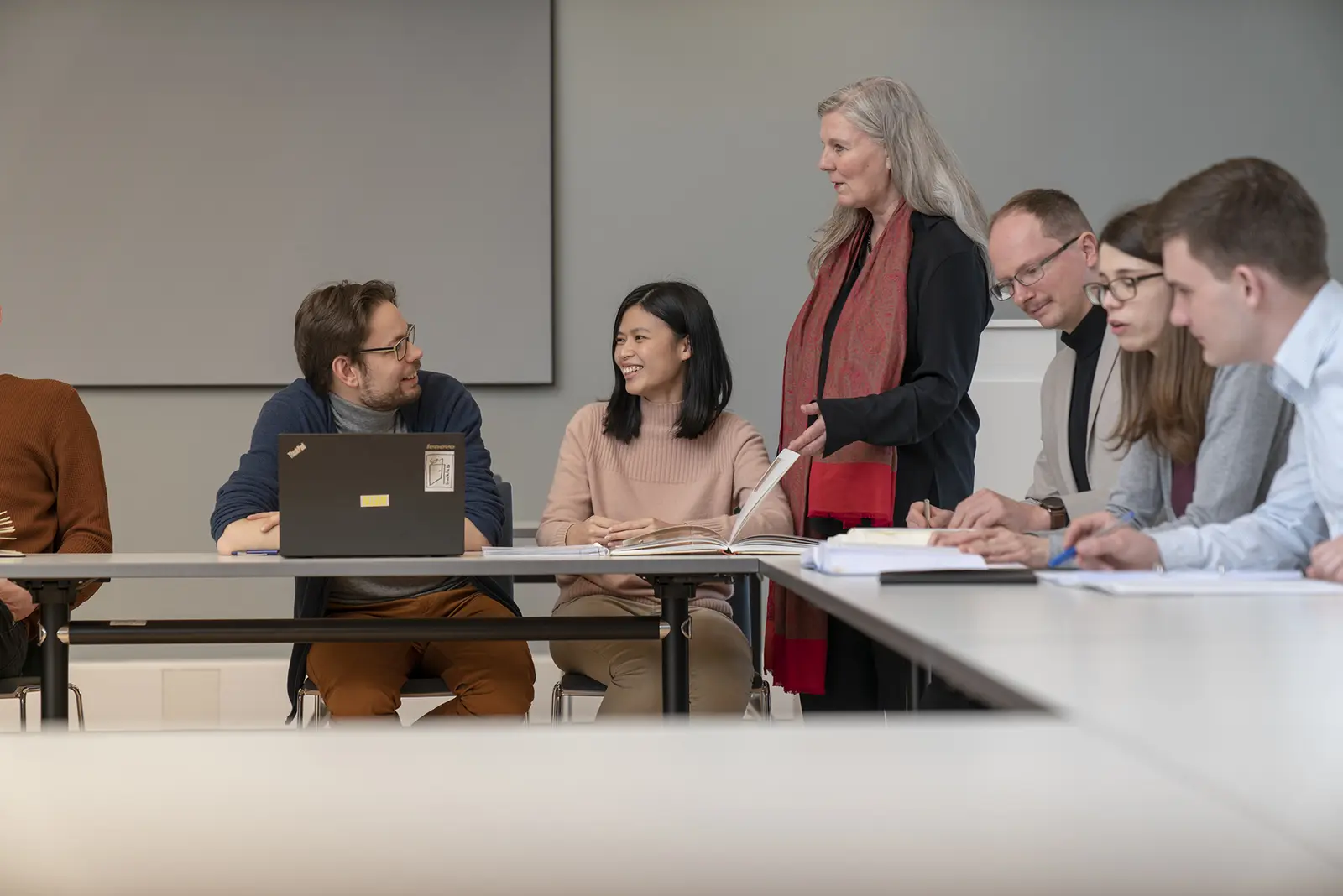Structured doctoral programme
The graduate centre “History of knowledge” currently offers the only structured doctoral programme related to collections available in Germany.
Apart from PhD candidates, the programme also involves postdocs in the group’s work in order to integrate and support graduate researchers in all phases of their academic careers. The main focus of their academic qualification during the programme lies on source-based and culture-oriented, methodologically reflected interdisciplinary historical research on topics dating from the 16th to the 20th century. This research is in turn based on praxeological as well as on actor-centred approaches to historical anthropology, recent approaches to regional history, global history, material-culture research as well as media history and history of ideas.
In addition to receiving the opportunity to conduct research on unique collections of historical sources, the graduate researchers of the graduate centre further benefit from the international reputation and network of the Gotha Research Centre. They are invited to take part in its international interdisciplinary events, socialise with researchers and scholars from all over the world and hold their own events and projects.
Graduate School
The graduate centre consists of doctoral students and postdocs who are supervised by a body comprising members of the research institutes in Gotha and the Faculty of Philosophy at the University of Erfurt. The internationally networked research location of Gotha/Erfurt makes it possible to establish numerous academic contacts. The current spokesperson of the programme is Prof. Dr Iris Schröder (Global History), the deputy spokesperson is Prof. Dr Bernhard Kleeberg (History of Science).
The graduate centre is supported by the Faculty of Philosophy at the University of Erfurt, the Centre for Transcultural Studies / Perthes Collection (FKTS) and the Gotha Research Centre (FZG). The workplaces are located in the Gotha institutes.


